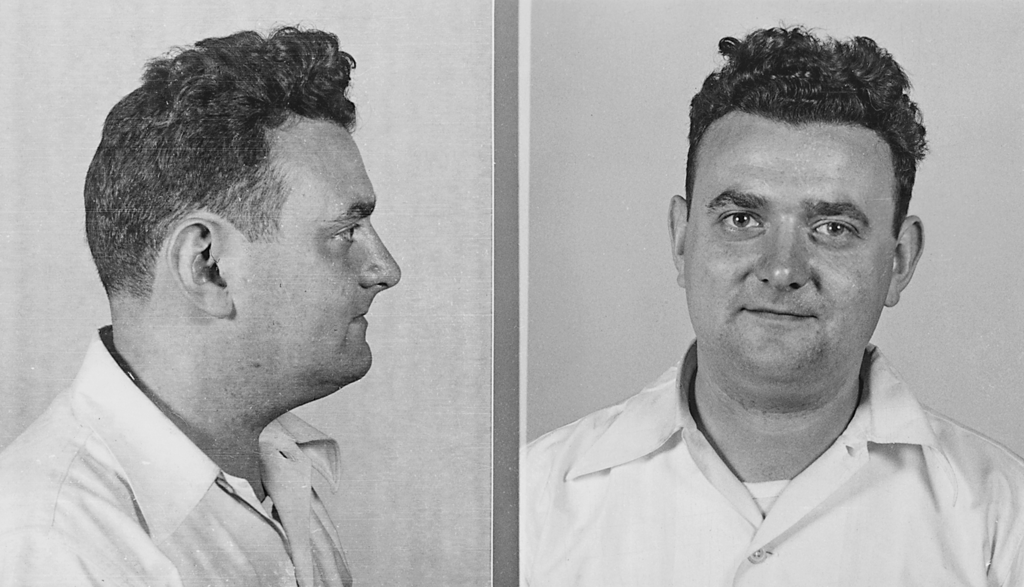David Greenglass (1922-2014) was a machinist and member of the Special Engineer Detachment who engaged in espionage activities for the Soviet Union at Los Alamos during the Manhattan Project.
Greenglass, the younger brother of Ethel Rosenberg, was born in New York, New York on March 2, 1922 to a family of Jewish immigrants. He graduated from Haaren High School in 1940 and later attended Brooklyn Polytechnic Institute, although did not complete his studies there.
In 1942 Greenglass married Ruth Printz. Prior to entering the US Army in April 1943, he and his wife joined the Young Communist League.
MANHATTAN PROJECT ESPIONAGE
Greenglass was assigned to work on the Manhattan Project in July 1944 as a member of the Special Engineer Detachment. Initially stationed at Oak Ridge, Tennessee, he was transferred to Los Alamos in August 1944 where he worked until February 1946. An Army sergeant and skilled machinist, Greenglass was on a team tasked with making molds for the high-explosive lenses used to detonate the plutonium core in the implosion bomb.
In November 1944, Greenglass and his wife were recruited by his brother-in-law, Julius Rosenberg, to spy for the Soviet Union. Decrypted cables from the United States Army Signal Intelligence Service (SIS)’s “Venona” project indicate Greenglass and his wife were given the codenames KALIBR (Caliber), and OSA (Wasp), respectively. In the middle of 1945, Greenglass sent Rosenberg a crude sketch and twelve pages of detailed notes on the implosion-type bomb.
Greenglass was honorably discharged from the Army in February 1946 and returned to New York where he, along with Rosenberg, ran a machine shop known as G & R Engineering.
Following the arrest of Klaus Fuchs and Harry Gold in 1950, Greenglass and Rosenberg’s espionage activities became known to the FBI. In June 1950, Greenglass was arrested. In February 1951, he testified against his sister by stating that Ethel had typed the information that Julius later passed on to the Soviet Union. In so doing, Greenglass secured immunity for his wife Ruth, which allowed her to remain with his children while he served his prison sentence. His testimony ultimately proved decisive in the conviction of the Rosenbergs, who were executed in the electric chair on June 19, 1953.
CONSEQUENCES
In March 1953, Greenglass wrote a letter to President Eisenhower asking him to commute his sister and brother-in-law’s sentences to prison terms. His request was not approved. He was released from prison in 1960.
Greenglass later stated that he intentionally implicated his sister to protect his wife and for the sake of his children. He said he did not recall who typed the notes, believing it could have been his wife. Greenglass died at the age of 92 on July 1, 2014 at a nursing home in New York.
Testimony released in July 2015 indicates that Greenglass did not specifically mention Ethel’s involvement in the delivery of atomic secrets to the USSR. His testimony, and the Rosenberg trial, remain controversial to this day.





